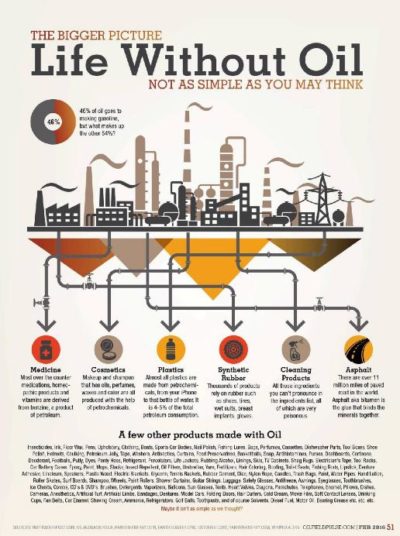
By
Over the last decade, climate activists have successfully pressured governments, banks, and corporations to divest from crude oil and natural gas companies. The energy infrastructures are just like the “civil” infrastructures the American Society of Civil Engineers (ASCE) Infrastructure Report Cards constantly addresses, and the resultant poor “grades” given to the infrastructures of our economy. Under-investment in infrastructure leads to deterioration and supply chain issues that more adversely impact the economy.

ESG “Environmental, Social, and Governance” investments are all the rage on Wall Street these days as climate activists continue to pressure governments, firms, and banks to divest from oil and gas exploration. The ESG investment directions are impacting the energy markets and the supply chain of products and fuels manufactured from crude oil and are, paradoxically, causing rising coal use, carbon emissions, and shortages.
Meanwhile, China, India, East Asia, and Europe are all mining and burning more coal to make up for the lack of natural gas. China, India, Indonesia, Japan, Vietnam, and Africa will have more than 3,000 coal fired power plants by 2030 in those developing countries with billions of people seeking abundant, affordable, and reliable electricity.
The ESG considerations now propagating throughout corporate America account for much of the decline in capital expenditures by international oil companies in recent years. Big financial institutions such as Bank of America and Mastercard, investment managers such as BlackRock and Vanguard, and hundreds of corporations are going all-in on the financial and commercial portion of the Great Reset, pushing environmental, social, and governance (ESG) metrics.
As we have learned from the ASCE Infrastructure Report Cards, under-investment in oil and gas exploration is “supposed” to facilitate the deterioration of fossil fuel infrastructures and lead to an economy rife with inflation and supply-chain disruptions.
Of the three fossil fuels of coal, natural gas, and crude oil, the ESG enthusiasts do not understand that crude oil is seldom ever used for the generation of electricity.
For electricity, most of the worlds continuous uninterruptable electricity generation is by coal, natural gas, hydropower, and nuclear. Crude oil is a non-player for electricity generation.
The primary usage of crude oil is not for electricity, but to manufacture oil derivatives that make 6,000 products used in our daily lives, and the transportation fuels needed by the world’s:
-
Militaries
-
23,000 Commercial jets
-
20,000 Private jets
-
10,000 Superyachts over 24 meters in length
-
300 cruise ships
-
53,000 merchant ships, and
-
1.2 billion vehicles
The economic comeback from the covid pandemic has pushed up demand. The underperformance of electricity generation from breezes and sunshine has meant higher demand for both natural gas and coal, to provide continuous uninterruptable electricity generation.
With ESG investment guidelines hovering over corporate America, oil and gas firms have since refused to expand production, even though the proof of this desperately needed infrastructure is in the data. Fossil fuels’ share of global energy production remain unchanged at 81 percent. To the extent emissions in Europe and the US declined, it was largely due to the transition from coal to natural gas.
Socially responsible investing is decades old, but ESG was embraced over the last decade by large university endowments, investment banks like Blackrock, governments, the International Energy Agency, the United Nations and eventually by oil and gas companies themselves, including Shell, Total, and many others. In May, a court in The Netherlands ordered Shell to reduce its emissions, a ruling that made firms reluctant to invest in new oil and gas exploration.
With ESG having picked breezes and sunshine as the winners for intermittent electricity generation, those taxpayer subsidies could further reduce the incentive for private firms to invest in oil and gas. Even if they don’t, the Biden administration has moved to restrict oil and gas drilling on public lands.
Like California, that relies primarily on foreign countries for 58 percent of California’s crude oil demands, President Biden has effectively accepted the idea that the United States will rely more on foreign oil. As a result, foreign nations will benefit from rising oil and gas prices at America’s expense
High oil and gas prices are already creating political problems for governments as they worsen inflation. Prices and shortages are likely to remain high for years not months.
Increasing America’s dependence on foreign oil producers makes even The New York Times, which has long championed oil and gas divestment, nervous.
The flagship of the alarmist polices today is the Green new Deal, the most recent iteration of the Green New Deal was first proposed in the United States by Rep. Alexandria Ocasio-Cortez (D-NY) and backed by other prominent politicians and Democratic presidential candidates, including Sens. Bernie Sanders (I-VT), Elizabeth Warren (D_MA), and Kamala Harris (D-CA).
Among the goals the GND seeks to accomplish by 2030 are the following:
- The elimination of all electricity generated by coal, natural gas, and nuclear power, concurrently while intermittent electricity from breezes and sunshine is underperforming.
- The GND seeks to replace all fossil fuels, including the innocent bystander fossil fuel of crude oil that is seldom used for electricity, but necessary for products and fuels.
The ESG movement does not bode well for both the electricity market and the supply chain for more than 6,000 products as the primary usage of crude oil is for the manufacture of derivatives for thousands of products, and fuels for transportation infrastructures.
Seems that we have learned very little from the ASCE Infrastructure Report Cards that have taught us those infrastructures deteriorate with under-investments. By under-investments in crude oil and natural gas infrastructures, the world leaders are tinkering with the supply chain of crude oil that is destined to impact resultant shortages of transportation fuels and the thousands of products made from the oil derivatives manufactured out of crude oil demanded by current lifestyles and worldwide economies.

